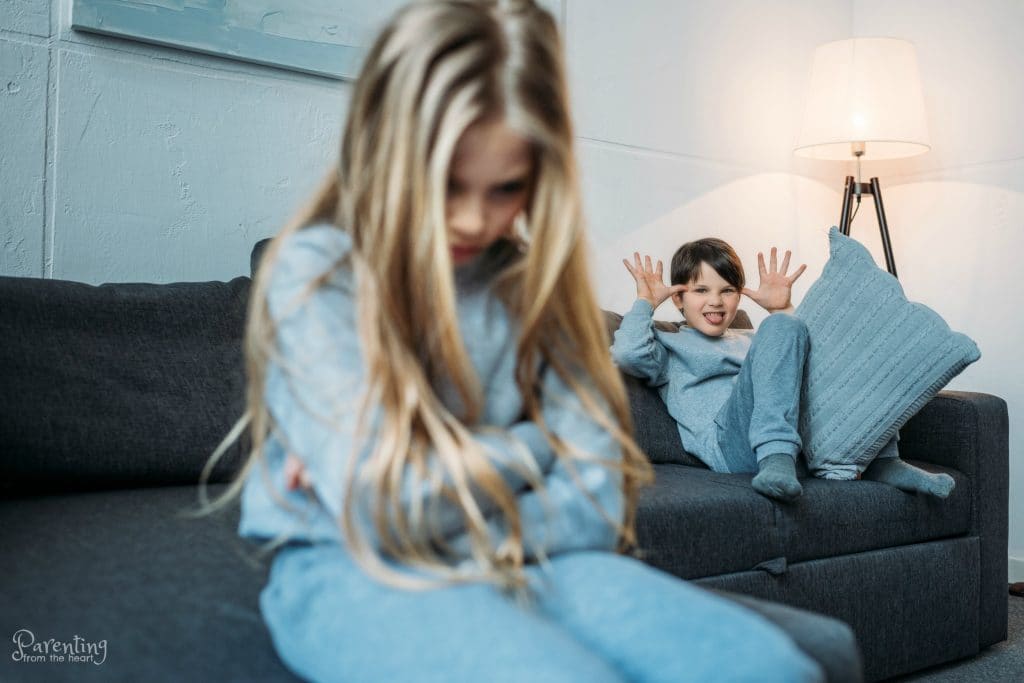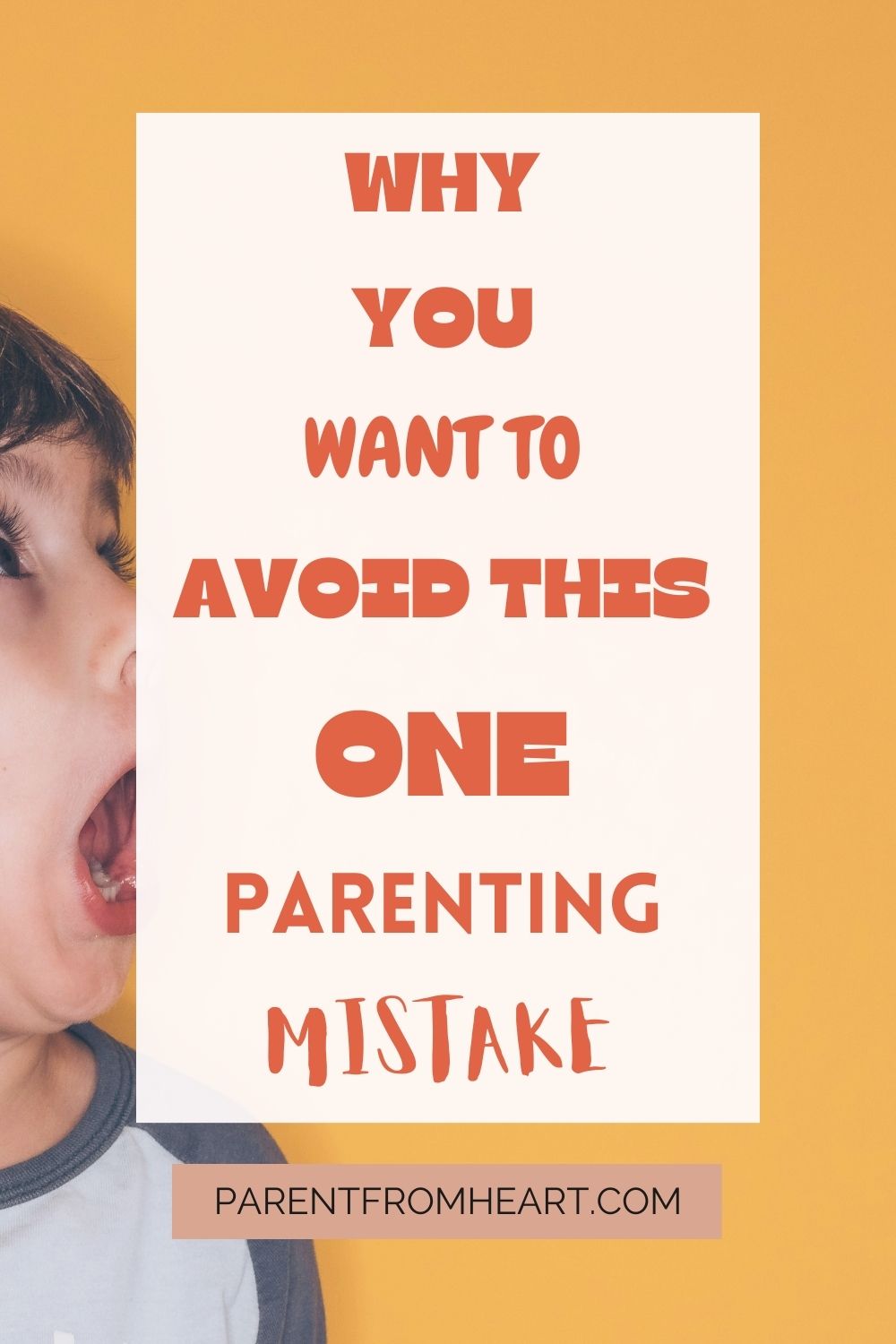When I first read that parenting without ultimatums was more effective, I was confused. Once I figured out how to parent this way, my kids began to listen better and our family was more peaceful.
Chaos consumed our family for far too long.
The main floor erupted into a physical and emotional minefield. Lego and little pastel plastic figures were always underfoot. But that wasn’t the worst part. My kids were emotionally reactive. Occasionally, there would be a brief lull as my two older kids would play collaboratively. But I would brace myself because I knew the peace was fleeting. Then, sure enough, screams would pierce the harmony.
“She pinched me.”
“He pushed me.”
“I said, ‘GIVE! ME! SPACE!'”
Tears were the backdrops of my life.
I did my best to actively listen to their feelings and use positive discipline.

But, I was making a crucial mistake.
Sifting through parenting articles on Facebook one day, I came across a post called “No Ultimatums: Parenting the Danish Way.”
I knew The Danish Way of Parenting is rooted in empathy and was intrigued. I was also interested because I used ultimatums and didn’t understand why I shouldn’t.
In an average day, I could be heard saying, “If you don’t stop yelling, you won’t get dessert.” And, “Keep your hands to yourself. If you hit again, you’re going to your room.”
I used ultimatums because:
- I felt like they gave the child a warning to make a better choice,
- The child knew the consequence that would come if he or she made a bad choice, and,
- Selfishly, it gave me extra time to finish loading dishwasher or attacking the mountain of laundry that needed folding.
As I read the article, I found out why The Danish Way of Parenting advises against ultimatums.
Using ultimatums when parenting isn’t great because:
- Ultimatums incite power struggles – they create a situation of win/ lose between the parent and the child,
- They break connectedness – connection fuels motivation.
Children only learn to behave and manage themselves because we want them to, and because they want to please us. If she doesn’t care that she’s upsetting us with her misbehavior, it means our relationship with her needs strengthening. Of course kids need our guidance, but if the relationship isn’t strong enough to support that guidance, then our primary focus needs to be on repairing the relationship
- They are threats and mean nothing if you don’t follow through.
I understood the why. But I didn’t understand how.

In truth, ultimatums were undermining my parenting.
Ultimatums had become a slippery slope of threatening to follow-through. I would be in the middle of a chore or working to make a deadline and wanted that extra chance for myself. So, I would give one chance, then another and then another.
By this time, the root of the behaviour had compounded.
Additionally, my rules and boundaries were becoming less clear. As a result, hitting and sibling rivalry consumed our family. We entered into an endless cycle of timeouts where my husband or I would be with our child.
It wasn’t working.
This post contains affiliate links. If you make a purchase, you pay the same price on Amazon and I will receive a commision.
When I began reading Peaceful Parent, Happy Siblings I noticed there were no warnings for discipline and it finally clicked.
Related reading: How to Stop Sibling Rivalry Using Unbelievably Simple Strategies
This is how to drop ultimatums and improve parenting
- Make a list of the non-negotiable rules in your family. We held our first family meeting and my husband and I prompted our kids to tell us the most important rules. The first rule they agreed on was that we couldn’t hurt each other (with words or gestures). Then, we explained that if they did, we would bring them to their room without warning.
- Prioritize connection. As mentioned in the quote above, when children feel connected to their parents they are motivated to cooperate. When I make time for my kids and make sure their emotional as well as physical needs are met every day, they listen so much better.
- Re-prioritize everything else. I work from home and can get caught up in tasks more than I’d like to admit. I now tie up my work for the afternoon before the kids come home from school so that I am available. This may look different for different families. It could be putting your phone on your charger until the kids are in bed or turning off ESPN.
- When he or she is about to break a non-negotiable rule, assume the best. When my daughter screams, “He’s going to hit me.” I say firmly, “No, he’s not. He’s going to make a good choice.” Nine times out of 10, he does.
- When he or she breaks the rule, be swift and calm with your time in. When my child has hurt her sibling, I now calmly go over and take her by the hand and tell her to come with me. If she refuses, I pick her up. Time in isn’t a punishment but a time to regain composure and reflect on the choice that got her pulled aside. There is no set time to spend in her room. I wait with her until she can honestly tell me she’s ready to make better choices.
For the longest time, I didn’t know how to drop ultimatums from my parenting. But when I did, power struggles became less frequent and our household became more peaceful.
Find out how we dealt with those pastel toys underfoot here.













Help me with teens. Wifi. Food in rooms.squalor. dogs abandoned. Eating poorly. Demands for money. Total disregard for connection as part of family. Poor hygeine. Feel like I’ve totally totally failed having had the up to 10yrs bit down pat, and that its easier to be angry. And use ultimatums. Vv stressful.
I was listening to the Jocko Willink podcast on ultimatums and a quick google search brought me to your blog. I am grateful that you put this method so quick and concise. I have two small girls and I don’t want the power struggle to continue or be a dictator parent stifling their creativity and growth and joy. Thank You!